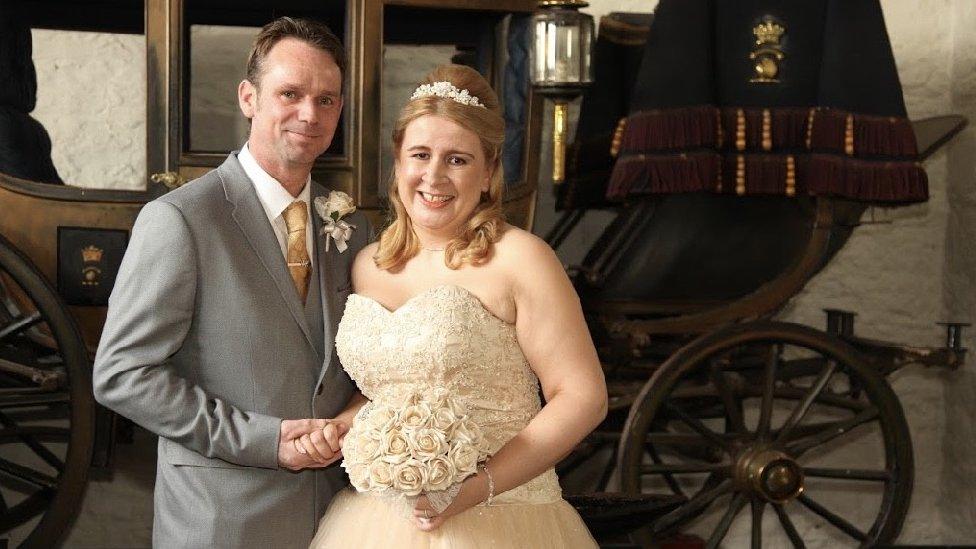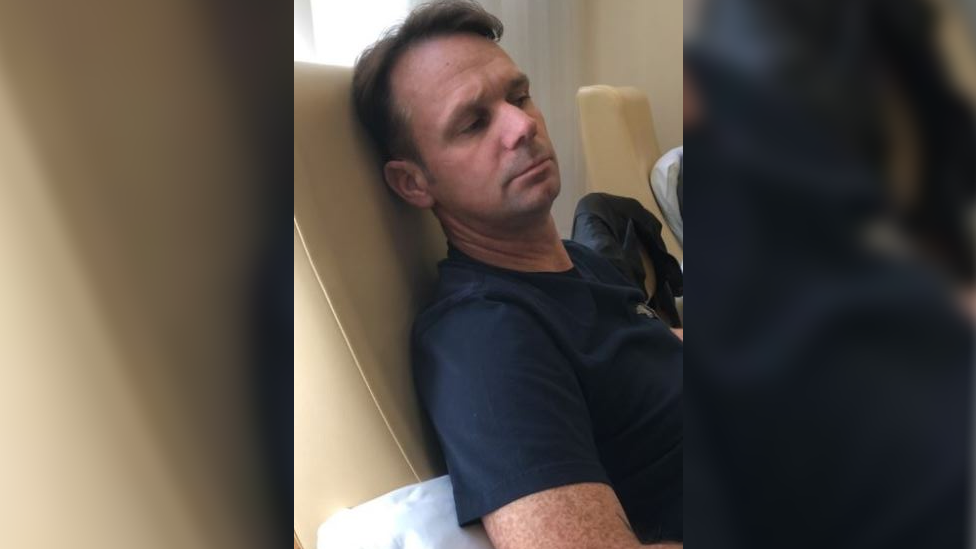Cancer patient left inoperable after Covid-19 delay
- Published

Adrian Rogers and his wife Amanda were left devastated after delays to his bowel cancer treatment meant his tumours became inoperable
A bowel cancer patient whose operation was cancelled due to Covid-19 has said "people will have died" from delays.
Adrian Rogers, 46, was due to have an operation in April, but after treatment delays his cancer became inoperable.
The scaffolder from Retford, Nottinghamshire, said the government could have done more to ensure beds were available for the most vulnerable.
The government said: "It is incredibly sad to hear of cases where cancer treatment has been affected."
Mr Rogers was diagnosed with stage four bowel cancer in July 2018.
"After 52 rounds of chemotherapy the cancer became operable, which was a great sign," he said.
He was taken off chemotherapy for eight weeks to allow his immune system to recover enough to survive an operation at the Manchester Royal Infirmary.
But his treatment was cancelled because he was told it was too risky for him to share an intensive care ward with Covid patients.

Mr Rogers is hoping a drug called Avastin will help him
Due to the delay, Mr Rogers grew 20 tumours and his condition again became inoperable.
He believes not enough was done by the government to ensure beds would be available for cancer patients most at need.
He said: "People will have now died as a result of delays to treatment."
Mr Rogers is continuing chemotherapy and is set to begin using a drug called Avastin, which is not available on the NHS.
His wife Amanda has raised £27,000 through GoFundMe for the treatment.
Manchester University NHS Foundation Trust said it had continued to provide cancer care to patients except when "the risks of treatment outweigh any benefit".
A Department for Health and Social Care spokesperson said: "Cancer diagnosis and treatment has remained an absolute priority."
Cancer Research UK said 20,000 fewer treatments took place between April and July across England, a 28% drop compared with the same period in 2019.
Chief executive Michelle Mitchell said the Covid-19 pandemic has had "a devastating impact on cancer services and the lives of cancer patients".
She said there are concerns a backlog of patients is not "being cleared quickly enough".

SCHOOLS: Which are re-opening, when?
SOCIAL DISTANCING: What are the rules now?
LOOK-UP TOOL: How many cases in your area?


Follow BBC East Midlands on Facebook, external, Twitter, external, or Instagram, external. Send your story ideas to eastmidsnews@bbc.co.uk.